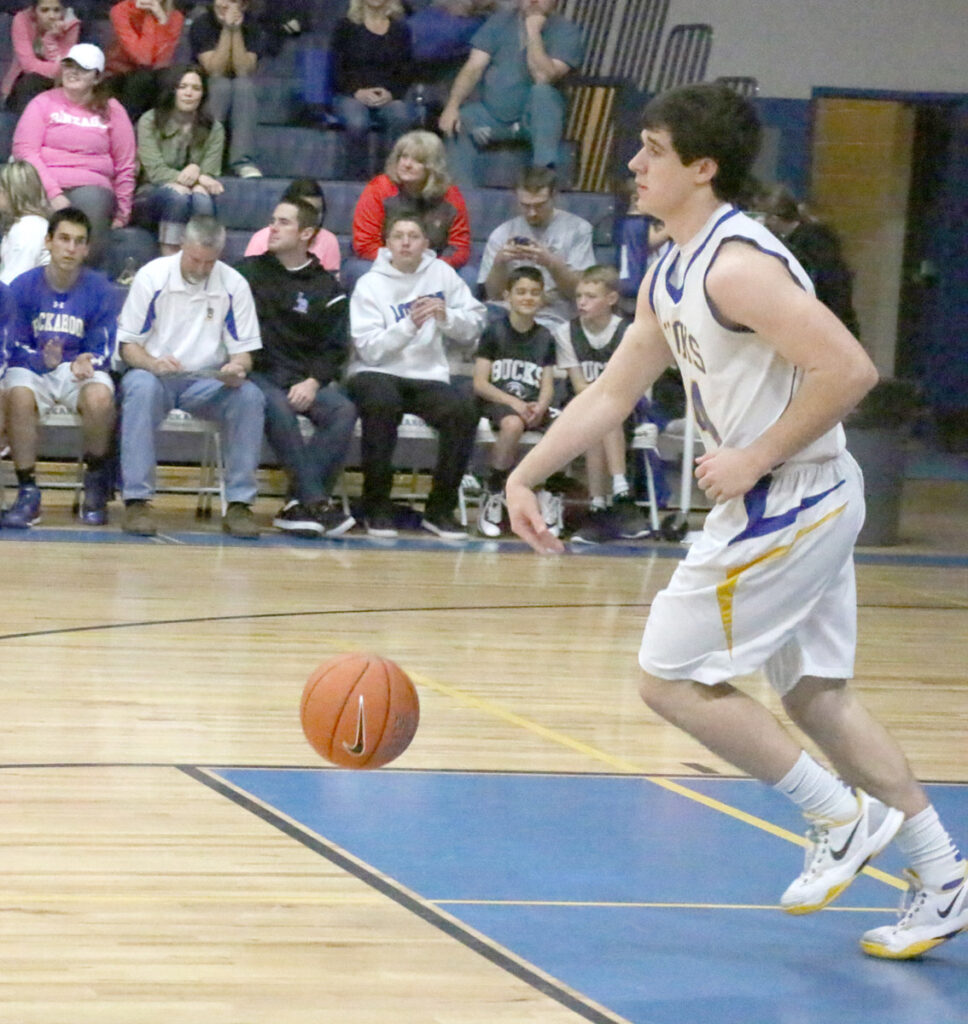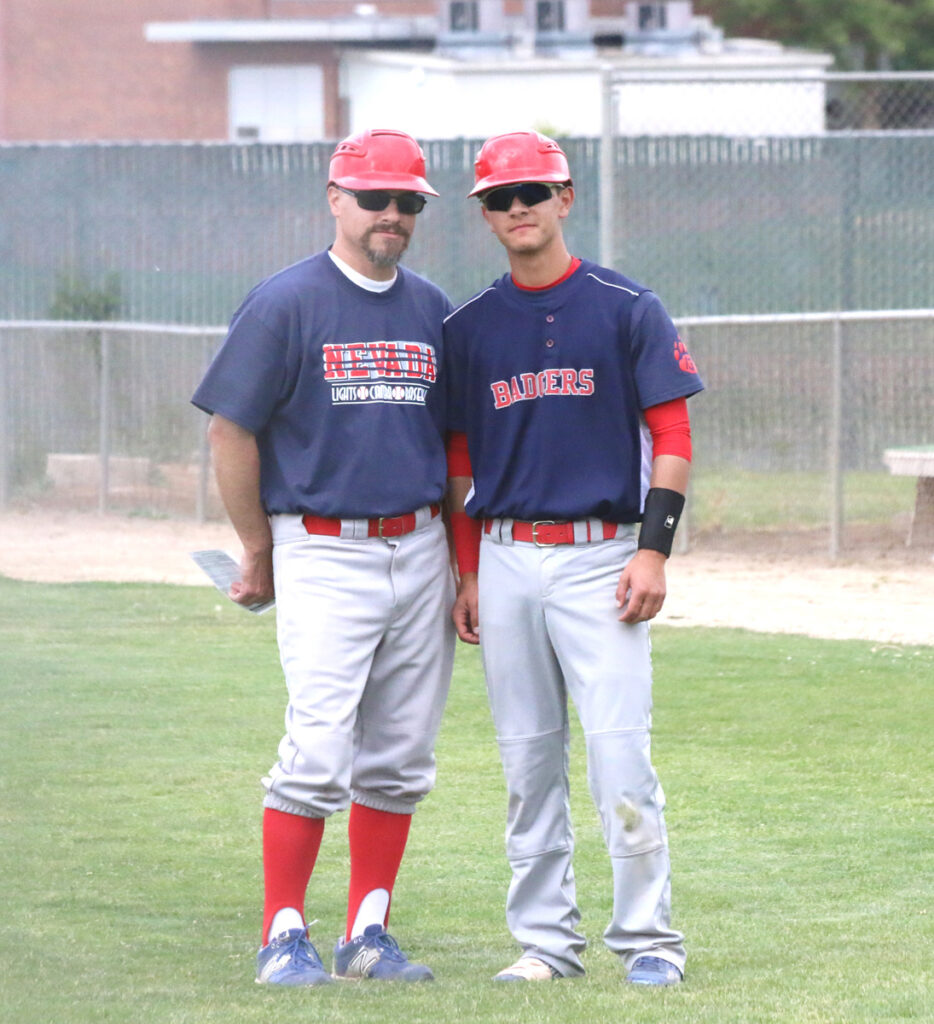By Kaity Sample, Dylan Kalkoske, and Ale Ibarra Posted March 07, 2017
Sports are a huge part of high school for some students. But sometimes sports will be a little different in the way of coaching if it is a family member who is your coach.
Having a family member as your coach can make things difficult or make your sports life easier.
Coach David Schwartz of the boys’ varsity basketball team has coached both his son and daughter in many sports. Schwartz thinks coaching your own kids is a difficult task and feels as if he is always asking himself the question of whether he is pushing his kids too much or needs to push them more.
“Coaching your kids is very difficult,” said Schwartz. “I really enjoyed it, but you don’t want to be too easy or too tough on them. I tried to get them to practice at home more, but it’s hard not to go overboard. You want them to enjoy the sport and the moment. If they do that, then maybe that motivates them to practice and work more on their own. I have seen kids pushed too hard by their parents so they end up hating sports and I didn’t want to be that person.”
Schwartz also said coaching your kids can bring out the worst in some situations, but in the end, bring them closer together.

“There were definite ups and downs, especially with my son,” said Schwartz. “We both have tempers, so we would sometimes get into some ‘high-level’ discussions during practice and after games, if you know what I mean. It was difficult to leave sports at the event and not carry it home, but I think it helped the relationship between us.”
Varsity volleyball coach Brandon Eastman may not have children, but he is in a similar situation with his youngest sister, Jadyn, on the team. He constantly asked himself if he was being hard enough on her and had to set some boundaries to make sure everything worked out.
“There were definitely some adjustments that needed to be made at the very beginning of the year,” said Brandon Eastman. “With it being my first time coaching her, it was new to both of us. But I get asked the question, ‘What’s it like coaching your sister,’ because I think people expect me to say it was difficult to coach my younger sister, but we had very clear boundaries in terms of ’this is when I’m your coach, and this is when I’m your brother. ’ Once we had those boundaries set, it was actually a very easy transition. Not to say there weren’t difficulties because there definitely were. I was constantly asking myself, ’Am I being hard enough on her? Am I being too hard on her?”
On the other side, Jadyn thought it helped her in a great way and made her want to prove her spot on the team, and that she didn’t make it just because of her brother.
“I loved having my brother as my coach. I feel like he pushed me to become a better volleyball player and a better person,” said Jadyn. “We had good communication and tried not to talk about volleyball that much at home. We made sure that he was my brother when we walked through the front door of our house and not my coach. But sometimes we didn’t agree on things that happened during practices or games, and it was hard not to talk about it at home. It was challenging, though, because I felt like people were going to say that I was just on the team because he was my brother, but that made me try ten times harder than I would with any other coach because I didn’t want people to say that I was playing because my brother is the coach. I wanted to prove that I deserved to play.”
Although coaching a sibling or even a son or daughter can be difficult, there will always be positives in the situation, like chemistry. Coach-to-player chemistry is a huge thing, and if you coach a family member, you will know a lot about them and their ways to further the success of the player and team.
Another example of a parent coaching their kids is the retired and former Junior High principal, Mr. Ray Garrison. He coached his two daughters in soccer and track.
“For me, it’s fun to share the competitive environment of sports with my girls. We have shared highs and lows together, and hopefully, our relationships have grown from those experiences. Sports can be a great thing as long as the parents and players keep it positive and are realistic about expectations,” said Garrison.
Keeping the sports talk away from home is a healthy thing to follow through to keep things stable.
“It’s important to keep the coaching on the field and not bring it home too often,” said Garrison. “Too much sports talk at home can wear on everyone, especially Mom. Sports need to be kept in perspective to the rest of one’s daily life.”
Garrison also shares what he enjoyed the most during his time as a coach.
“The best thing about working with your kids is being able to spend good, positive time with them in a different environment than home,” said Garrison. “The struggle sometimes can be separating home time from sport time. It’s okay to talk sports at home, but there is definitely a happy medium.”
Senior Nico Espinola has been coached by his dad, Ron Espinola, in baseball and soccer for many years and believes it has made him a better athlete.
“Having my dad as my coach has turned me into a better player,” said Nico Espinola. “He has taught me so much about the sport throughout the years.”
Finding the ratio of dad-to-coach came pretty easily for them.

“At home, he is my dad, and on the field, he is my coach,” added Nico. “Sometimes baseball talk happens at home, but for the most part, it is pretty separate. The only really bad part of being coached by my dad is putting in all the extra work on the field on the weekends.”
Ron Espinola would agree that he and his son have built a stronger relationship.
“Spending that much time with your child can really be helpful,” said Ron Espinola. “Otherwise, as a coach, you don’t get to spend a lot of time with your family. At an early age, Nico was on the road and in the dugout with the baseball team. He probably saw and heard some things a 6-year-old shouldn’t, but I think we made some good memories, and I think he is a better player as a result.”
Beau Billingsley also talked about how he and his dad, Tim Billingsley, were able to communicate easily on and off the football field.
“The good thing about having your dad as a coach is that it is really easy to communicate, whereas some kids might not know the coach as well and can’t communicate,” said Billingsley. “You can give him feedback and vice versa easily.”
He added that it strengthened their relationship and made him an overall better athlete.
“It strengthened my relationship with my dad just because we spent a lot of time together,” added Billingsley. “It made me a better athlete because your dad can be completely honest with you because he doesn’t care if he hurts your feelings as much. You can also go home and continue to work on things or talk about what you learned at practice.”





